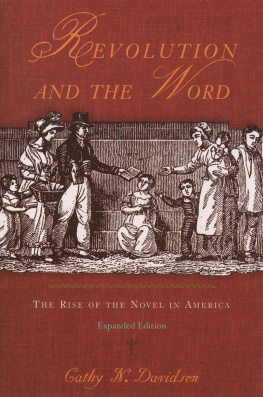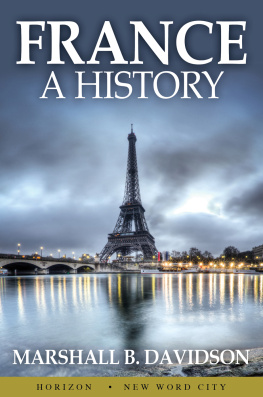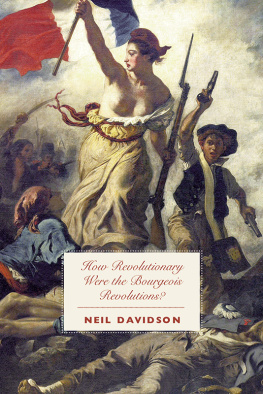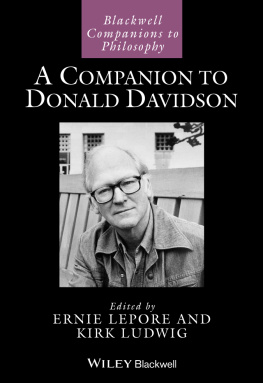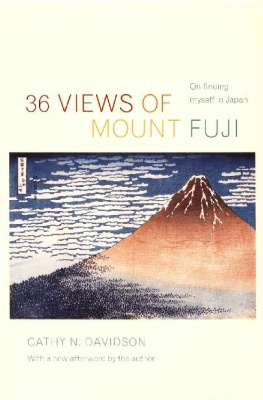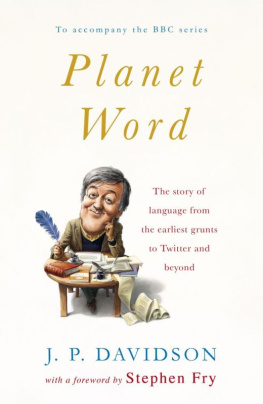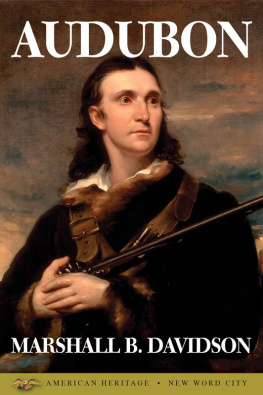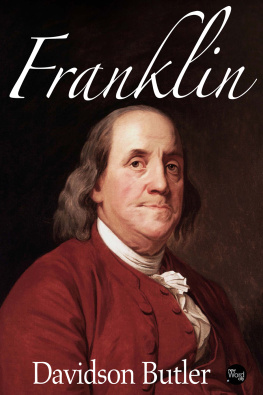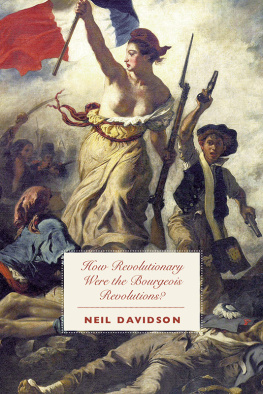Davidson Cathy N. - Revolution and the Word
Here you can read online Davidson Cathy N. - Revolution and the Word full text of the book (entire story) in english for free. Download pdf and epub, get meaning, cover and reviews about this ebook. year: 2004, publisher: OxfordUP, genre: Politics. Description of the work, (preface) as well as reviews are available. Best literature library LitArk.com created for fans of good reading and offers a wide selection of genres:
Romance novel
Science fiction
Adventure
Detective
Science
History
Home and family
Prose
Art
Politics
Computer
Non-fiction
Religion
Business
Children
Humor
Choose a favorite category and find really read worthwhile books. Enjoy immersion in the world of imagination, feel the emotions of the characters or learn something new for yourself, make an fascinating discovery.
- Book:Revolution and the Word
- Author:
- Publisher:OxfordUP
- Genre:
- Year:2004
- Rating:3 / 5
- Favourites:Add to favourites
- Your mark:
- 60
- 1
- 2
- 3
- 4
- 5
Revolution and the Word: summary, description and annotation
We offer to read an annotation, description, summary or preface (depends on what the author of the book "Revolution and the Word" wrote himself). If you haven't found the necessary information about the book — write in the comments, we will try to find it.
Revolution and the Word — read online for free the complete book (whole text) full work
Below is the text of the book, divided by pages. System saving the place of the last page read, allows you to conveniently read the book "Revolution and the Word" online for free, without having to search again every time where you left off. Put a bookmark, and you can go to the page where you finished reading at any time.
Font size:
Interval:
Bookmark:

EXPANDED EDITION
Cathy N. Davidson

2004

OxfordNew York
AucklandBangkokBuenos AiresCape TownChennai
Dar es SalaamDelhiHong KongIstanbulKarachiKolkata
Kuala LumpurMadridMelbourneMexico CityMumbaiNairobi
So PauloShanghaiTaipeiTokyoToronto
Copyright 1986, 2004 by Oxford University Press, Inc.
Published by Oxford University Press, Inc.
198 Madison Avenue, New York, New York 10016
www.oup.com
Oxford is a registered trademark of Oxford University Press
All rights reserved. No part of this publication may be reproduced, stored in a retrieval system, or transmitted, in any form or by any means, electronic, mechanical, photocopying, recording, or otherwise, without the prior permission of Oxford University Press.
The Library of Congress cataloged the original edition as follows:
Davidson, Cathy N., 1949
Revolution and the word.
Bibliography: p. Includes index,
1. American fiction19th centuryHistory and criticism.2. Social history in literature.3. American fiction18th centuryHistory and criticism.4. Literature and societyUnited States.5. United StatesCivilization1783-1865. I. Title.
PS374.S67D381986813'.00986-5272
ISBN 978-0-19-514823-7 (pbk.)
To my teachers and studentspast and future
When my editor at Oxford University Press asked if I would write a substantial introduction to a new edition of Revolution and the Word, reframing it for this generation of readers, I had to consider what that might involve. When it appeared in 1986, Revolution and the Word was one of the first books to focus on the coemergence of the new U.S. nation and the new literary genre of the novel. It was an ambitious book. It analyzed the role played by literary culture in the urgent political and social debates in the early Republic and examined the role of the novel in the everyday lives of men and women of varying social classes. It was comprehensive in scope (mapping the full range of U.S. fiction written between 1789 and 1820) and method (moving from archival documents and even marginalia to current literary theory and social history). And it proposed a new way of looking at literaturea history of texts approach that brought together history of the book, reception studies, social history, historical materialism, and poststructuralist critical theory (including deconstructive ways of reading texts and subtexts). Since then, myriad books and articles have taken up various of these topics. Reintroducing Revolution and the Word would require an unusual intellectual exercise: I would have to historicize my own work and respond to these responses.
The prospect of return was daunting, and made more so by the fact that in the intervening years I have concentrated on other intellectual areas and historical periods in my research and teaching. As new arguments, theories, and archives emerge, a responsible scholar rethinks ones own argument. I certainly have. So what would it mean, over fifteen years later, to reunite with a book to which I devoted the first decade of my academic career? Ive never been to a class reunion, but I suspect the feelings aroused by such a conscious return to a previous era in ones life are not dissimilar to those I felt upon revisiting Revolution and the Word.
It has been a fascinating, if humbling, experience. To reread ones own work is to view ones earlier self through the lens of all that has transpired. It requires contextualizing ones own intellectual contribution within a specific critical moment. This is the opposite of nostalgia (which is memory without context). And it requires being receptive to (and again contextualizing) dozens of essays and books that take ones ideas as a launching pad for different ideas, and then translating those insights as well.
I have spent the last two years reading work specifically related to the history and culture of the early national period and the origins of American fiction while continuing to pursue wide-ranging interdisciplinary scholarly interests that are key to my current position as vice provost for interdisciplinary studies and cofounder of the John Hope Franklin Humanities Institute at Duke University. Putting these very different scholarly experiences togetherspecialized research in a foundational period in American political and cultural history and working to foster, institutionally, research across all of the departments and professional schools at a research universityhas made me think about the intertwined networks of scholarship that contribute to any project. Writing the new introduction has made me think deeply once again about the scholars who influenced me during the decade in which I wrote Revolution and the Word as well as those whom I have read with excitement since the books publication. And reading different critics read my book has in turn helped me read other criticsa circular process, but not a trivial one.
To that end, the new introduction does several things. It provides a reconsideration of an older set of critical assumptions; it posits a new framework for thinking about the postrevolutionary era of American culture in the light of new scholarship and theories; and it stands back and asks a series of questions about the ways theories, fields, disciplines, canons, and archives are constructed and interpreted. Rather than re-address questions already discussed in detail in Revolution and the Word, I have tried to give readers glimpses into the process of history-and theory-making that is at the heart of all scholarship. The new introduction, in part, makes visible the workings of culture that contribute to education (in the varied senses of that word)not only in the early national period but in the present social, political, and intellectual climate.
WHO WERE THE CRITICS who most influenced me in the process of writing Revolution and the Word? Even a glimpse at the endnotes to the original edition shows there are too many to mention by name. However, those who most shaped my thinking in the 1970s and 1980s when I was doing archival research on early American writers, readers, publishers, and educators shared my fascination with the relationship between political movements and cultural forms. To encompass that wide topic, Revolution and the Word combines various kinds of analysisliterary and historical, theoretical and archival, aesthetic and material, formal and sociological, text-based and reception-based. It draws overtly from and combines two different understandings of culture: what is often described as the literary-moral analysis of culture as well as the anthropological explanation, which sees culture (in the succinct summary of Janice A. Radway) as the whole way of life of a historically and temporally situated people.
Revolution and the Word embeds its aesthetic, generic, and formalist readings in the founding national moment of U.S. history and is thus indebted to research by myriad social historians of the early Republic. Conceptually, it owes a special debt to historical materialist and Marxist historians going back, in the American tradition, at least to Charles Beards landmark work An Economic Interpretation of the Constitution of the United States
Font size:
Interval:
Bookmark:
Similar books «Revolution and the Word»
Look at similar books to Revolution and the Word. We have selected literature similar in name and meaning in the hope of providing readers with more options to find new, interesting, not yet read works.
Discussion, reviews of the book Revolution and the Word and just readers' own opinions. Leave your comments, write what you think about the work, its meaning or the main characters. Specify what exactly you liked and what you didn't like, and why you think so.

